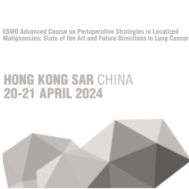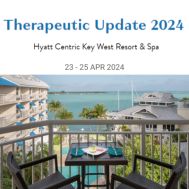A Practical Guide to Best Practice Symptom Control & Management in End of Life Care

Start
Tue, 13 Dec 2022, 09:00
End
Tue, 13 Dec 2022, 18:00
WebSite
Venue:
Exhibit
Symposia
Workshops
Organiser
Sponsor
It is widely recognised that pain and symptom control at the end of life is not always optimal, this conference focuses on symptom control and management in end of life care – supporting you to deliver best practice in managing both common and difficult to control experienced symptoms to maintain the person’s comfort and dignity without causing unacceptable side effects. The conference will focus on both pharmacological and non-pharmacological methods of symptom management and also discuss symptom control for patients at the end of life with Covid-19.
The findings from the most recent National Audit of Care at the End of Life Report showed that for patients dying in hospitals:
- 73% of respondents felt the person was given sufficient pain relief, 9% disagreed or strongly disagreed
- 69% felt the person had sufficient relief of symptoms other than pain (such as nausea or restlessness) always or most of the time, 10% disagreed
- 60% felt the person had support to drink or receive fluid if he/she wished always or most of the time, 12% disagreed
- 56% felt the person had support to receive nutrition, 13% disagreed
This conference will enable you to:
- Network with colleagues who are working to improve symptom control and management for people at the end of life
- Reflect on the lived experience of a person with a terminal illness and how we can better involve people in decision making and preferences for symptom management
- Learn from outstanding practice in managing common, and difficult to control symptoms at the end of life
- Reflect on national developments and learning
- Symptom control in Covid-19 patients at the end of life
- Ensure effective management of pain, breathlessness and respiratory secretions, nausea and vomiting, constipation and other common end of life symptoms
- Improve the way pain is managed at the end of life, including the use of controlled drugs
- Develop best practice in prescribing for symptom control in End of Life Care including developing the role of the non-medical prescriber
- Understand prescribing side effects and toxicity at the end of life
- Understand how you can improve the management of hydration and nutrition including latest evidence on Clinically Assisted Nutrition and Hydration
- Identify key strategies for managing Agitation, Delirium and Anxiety at the end of life
- Develop your role in providing physiological, psychological, social and spiritual support
- Improve the use of complementary therapies
- Self assess and reflect on your own practice
- Gain CPD accreditation points contributing to professional development and revalidation evidence
More events

Sat, 20 Apr 2024 - Sun, 21 Apr 2024

Mon, 22 Apr 2024 - Wed, 24 Apr 2024

Mon, 22 Apr 2024 - Tue, 23 Apr 2024

Tue, 23 Apr 2024 - Thu, 25 Apr 2024

Tue, 23 Apr 2024 - Thu, 25 Apr 2024

Wed, 24 Apr 2024 - Fri, 26 Apr 2024

Thu, 25 Apr 2024 - Sat, 27 Apr 2024

Fri, 26 Apr 2024 - Sat, 27 Apr 2024


Wed, 1 May 2024 - Fri, 3 May 2024














